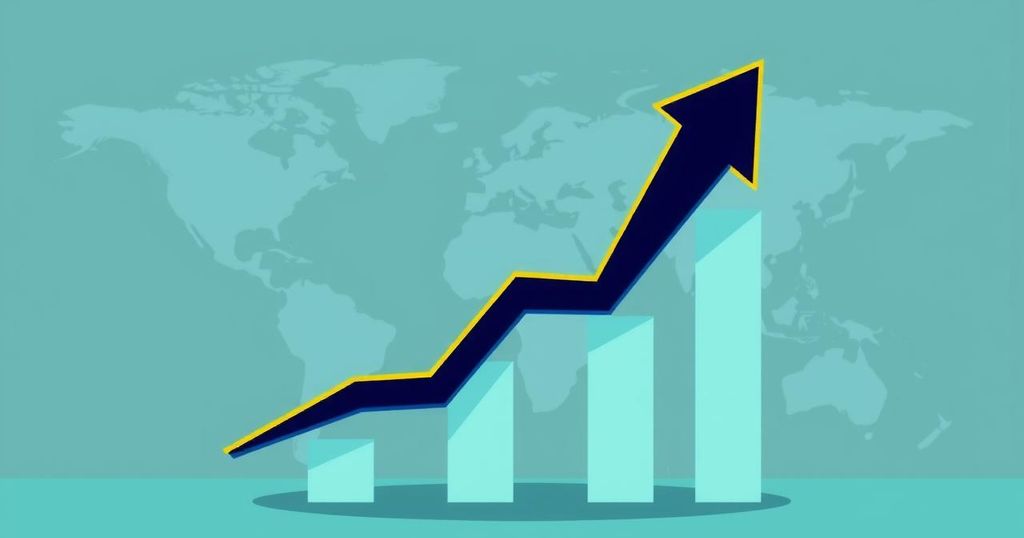Oil prices increased on Tuesday, bolstered by Middle Eastern tensions and China’s economic stimulus, despite global growth concerns. Brent crude reached $71.43 per barrel while U.S. West Texas Intermediate hit $67.90. Factors such as U.S. airstrikes in Yemen and stronger retail sales in China have contributed to this rise.
On Tuesday, oil prices experienced an increase, driven by ongoing tensions in the Middle East and China’s economic stimulus plans, despite concerns regarding global economic growth, U.S. tariffs, and uncertainty surrounding ceasefire discussions in Ukraine which tempered the gains. Brent crude futures rose by 36 cents (0.5%) to $71.43 per barrel, while U.S. West Texas Intermediate crude futures similarly increased by 32 cents (0.5%) to $67.90 by 07:00 GMT.
Analysts from ING attributed the rising oil prices to U.S. airstrikes on Houthi positions in Yemen and China’s announcement of a special action plan aimed at boosting domestic consumption through income increases and childcare subsidies. Additionally, economic data released indicated stronger-than-expected retail sales growth for January and February, even as the urban unemployment rate reached a two-year high.
In China, the largest importer of oil globally, refinery consumption rose by 2.1% during January and February, buoyed by the operation of a newly built refinery and heightened demand associated with the Lunar New Year holiday. Concurrently, threats from U.S. President Trump to escalate military actions against Houthis if they continued attacking ships in the Red Sea, with Iran deemed responsible for any new assaults, added to the price pressure.
The ongoing Israeli-Palestinian conflict saw an intensification, with Israel conducting airstrikes on Gaza, resulting in significant casualties. This came after a period of relative calm following a ceasefire in January. Furthermore, the OECD noted that the tariffs imposed by the Trump administration would likely hinder economic growth across the U.S., Canada, and Mexico, potentially reducing global energy demand.
Venezuelan oil company PDVSA expressed intentions to sustain its oil production and exports in collaboration with Chevron, even after the forthcoming expiration of a U.S. license. The market is keenly observing upcoming discussions between Trump and Russian President Vladimir Putin regarding the conflict in Ukraine, as any peace agreement might reduce sanctions against Russia and reintegrate its oil supplies into the global market, thereby influencing oil prices downward.
In summary, oil prices have risen amidst geopolitical tensions and economic stimuli, particularly from China. As the situation evolves, various global factors including military actions in the Middle East, conflicts impacting production, and potential diplomatic resolutions in Ukraine will continue to affect market dynamics and pricing. It remains crucial to monitor these developments closely.
Original Source: www.jordannews.jo




